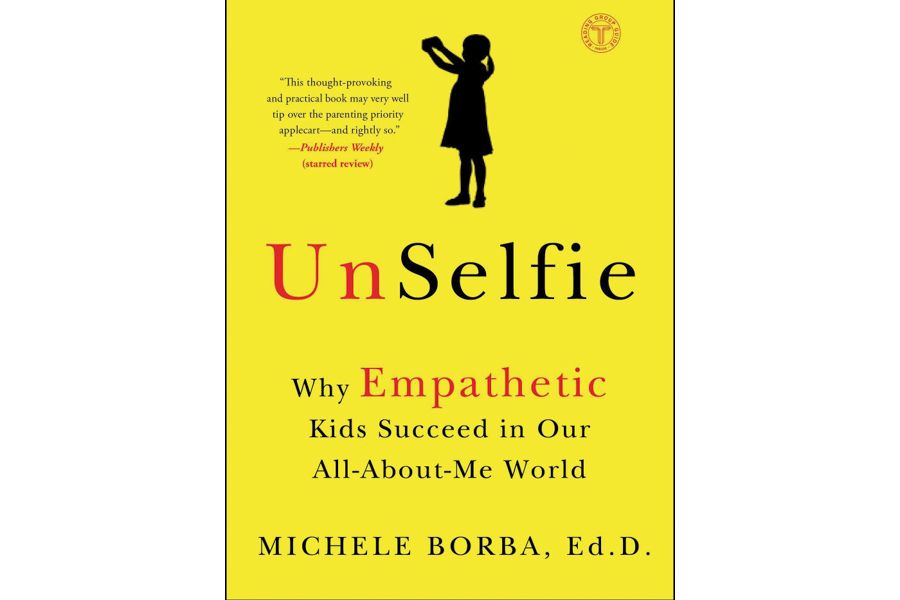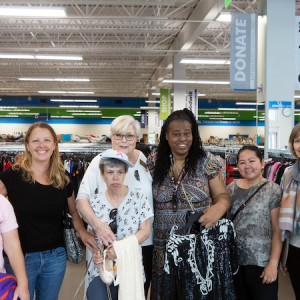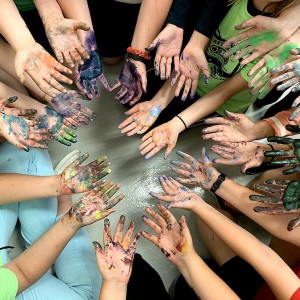Teens today are 40% less empathetic than they were 30 years ago, often with devastating consequences, according to a University of Michigan study. Forty Carrots brings acclaimed author Michele Borba of the new book, Un-Selfie, to Sarasota for a free presentation this month. With both a warning and solutions, she offers actionable ideas that build successful, happy kids who grow up to be moral and resilient adults, all on a foundation of increased empathy.
I really enjoyed your new book Un-Selfie. Let’s start by defining what you call the “Selfie Syndrome”? Michele Borba: I actually came up with that term based on a conversation with a teen. It was a focus group with teen girls, 13-15 years of age. They all admitted they were stressed out. Everybody was worried about their Instagrams and they were always looking down at their phones, not up. One girl said, “That’s the problem. We’re always taking selfies of each other and ourselves,” and then she had this moment of, “boom!”. She said, “Maybe if we flip the lens and started looking at others, we’d be a lot better off. We need to be in an ‘un-selfie.’” I thought, “Oh my gosh, what a great term.” We’re looking at a University of Michigan study, combining 72 different studies, over the last 30 years. We are seeing that incoming college freshmen are dipping in empathy and it’s gone down about 40%. The concern is that when empathy goes down, then we’re looking at some major concerns about our children’s future. Empathy has dropped, while narcissism, “I’m better than you”, has gone up 58%. Self absorption kills empathy. That’s a tragedy for our kids.
As a parent, you’re hit with these waves of things to be concerned about. How do you speak to a parent when they’re trying to prioritize? There’s a great one We’re looking at parents who are stressed to the max. We’re told to do this, this, this. What really matters? The opening question is, how do you want your child to turn out? And almost all of parents want their kids to have the college degree or be successful. But we’re going beyond success, [we’re asking] what does really define success? Almost every parent would say, “I want a happier kid who’s going to have good relationships and can live someday without me.” I say, “well, in that case, what you want is a kid with empathy.” Often we are defining “Empathy” as soft and fluffy, when in reality, the last 10 years of research is telling us that we’re misinterpreting it. It’s transformational and it’s what today’s kids need more than ever. Yes, your child needs the grades, but what we’ve also done is put empathy so low on the totem pole.
What about your own childhood? How does your childhood compare to today? Night and day. Oh my gosh. In fact, this is a great question because I was just looking at how childhoods have changed. Empathy waxes and wanes based on a culture. Society makes a big difference. First of all, I had a sandbox. Second of all, I had parents who made sure everything was in a G rating. As a parent, I had Mr. Rogers raising my children. I didn’t have the most vividly, scary, gratuitous, late-breaking news blasting on my cell phone. We had dinner conversations. We were plugged into each other and not to things. As a result, relationships really mattered. We had play dates. We were able to open up the door. I wasn’t bubble-wrapped by my parent. Childhood has changed dramatically. You can’t turn back the clock, and obviously June Cleaver and Mayberry aren’t there any more. You can’t change the times, but you can turn up what matters most in raising good kids.
Our communities are less built around religion or faith groups. The result is that parents have to be the main source of a family’s morality. The average parent isn’t Aristotle or Saint Anselm, but we sort of need to be. It’s a huge burden for parents today. It’s a huge burden and here’s why. You’ve just summed up the change in the culture. One of the things that’s fascinated while writing this book was to figure out “what builds goodness?” I toured the most horrific sites in the world, from Auschwitz to Dachau to the Killing Fields to Rwanda. I was looking for a solution. I kept reading social psychologists who said, “children who were raised by parents who really encouraged social responsibility and empathy by talking about it, or by modeling it, the child picked it up.” Children are watching adults right now who should be part of the Hall of Shame. They’re seeing from real adults from all over, we won’t have to name names on that but, names from political to movie stars to National Football League to all the above, kids are having a problem because they don’t know what behavior to catch. The simplest way to boost empathy isn’t by talking about it but by showing your child it. If your child had only your behavior to watch every day, what would he be catching?











